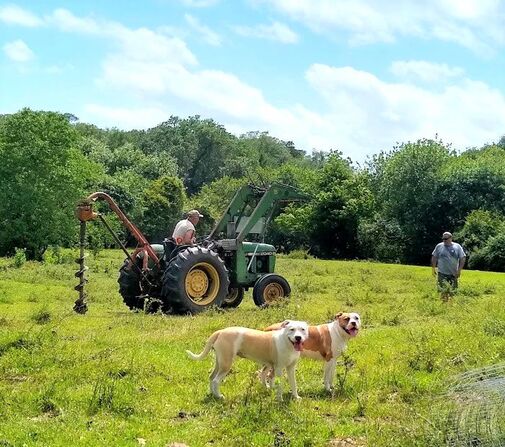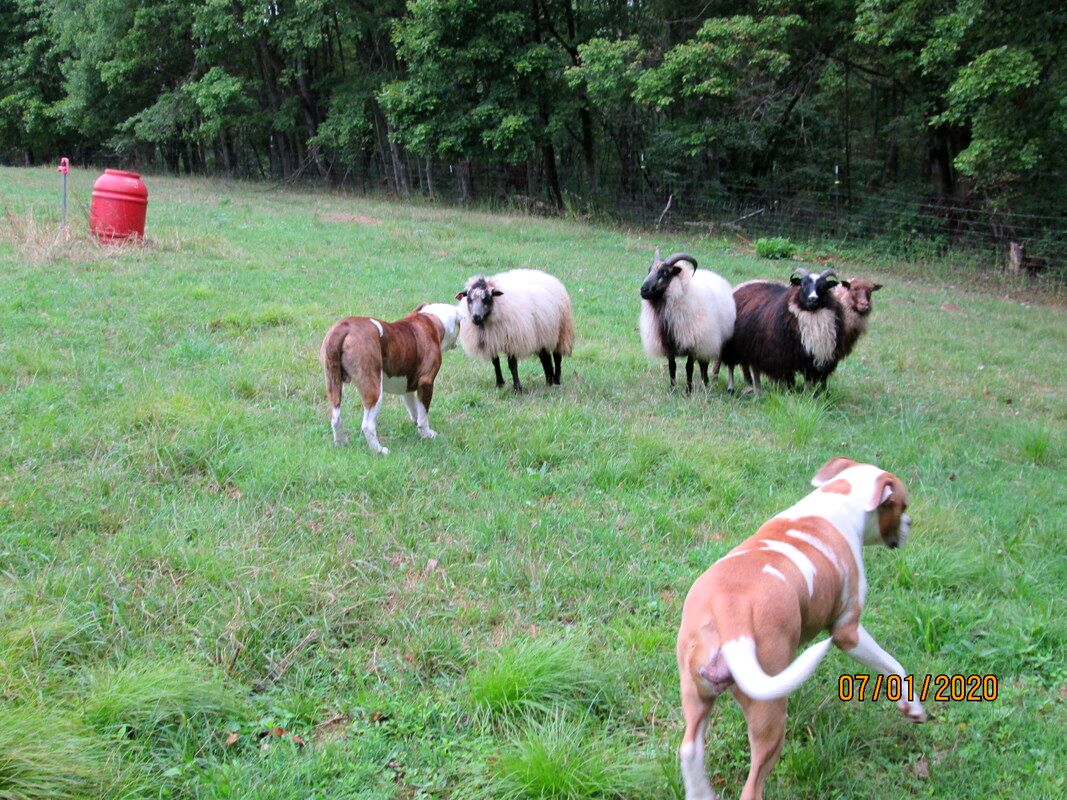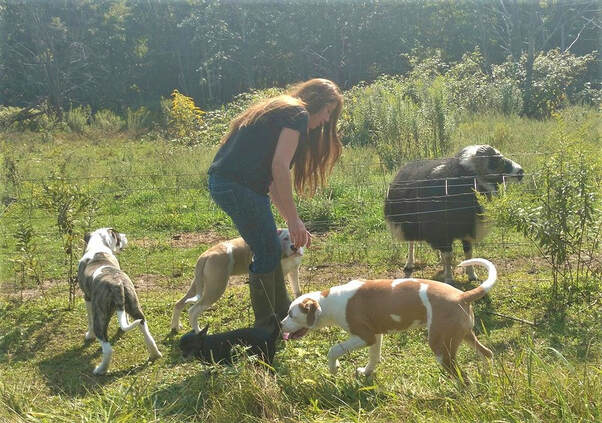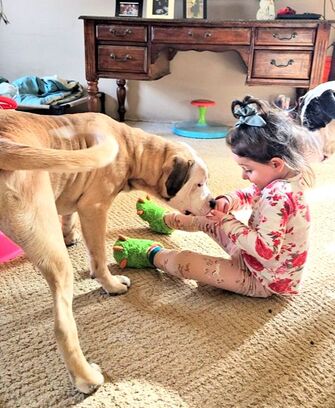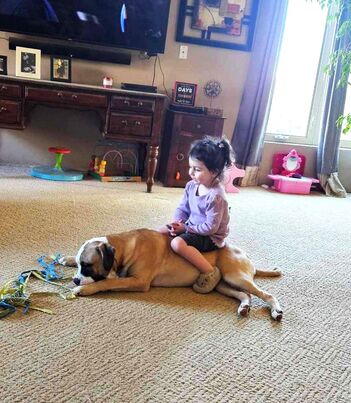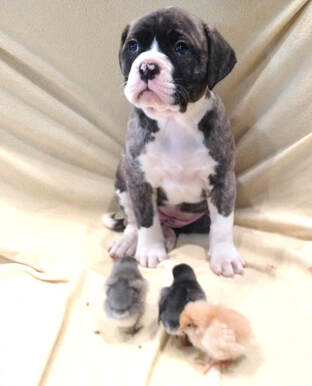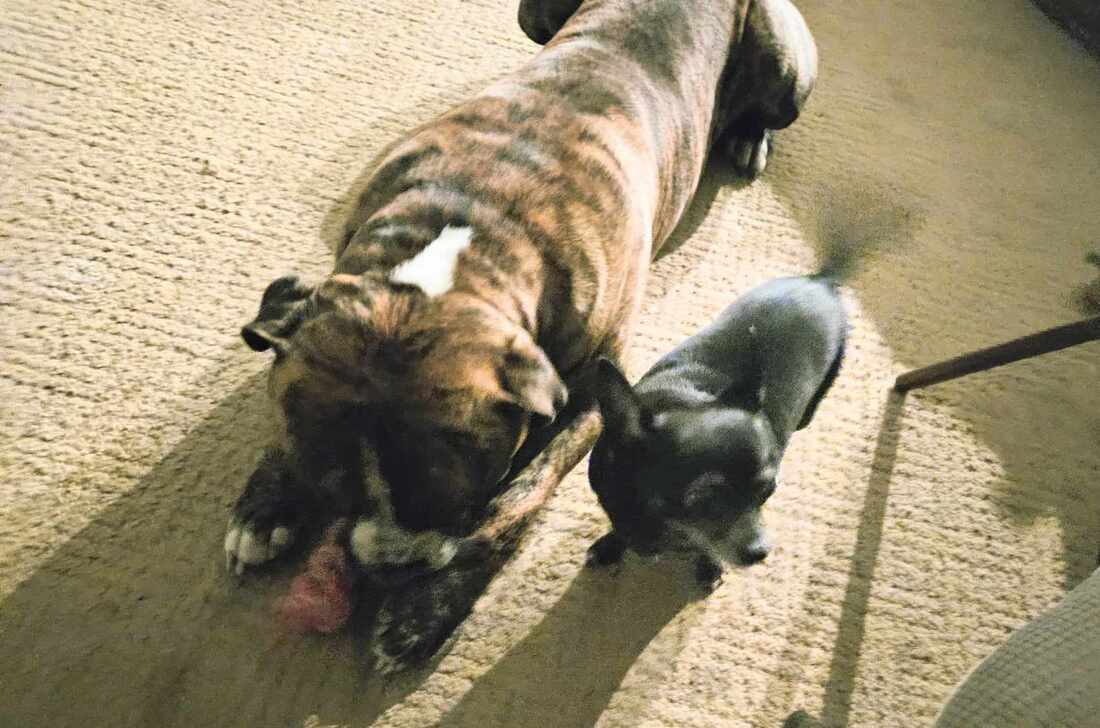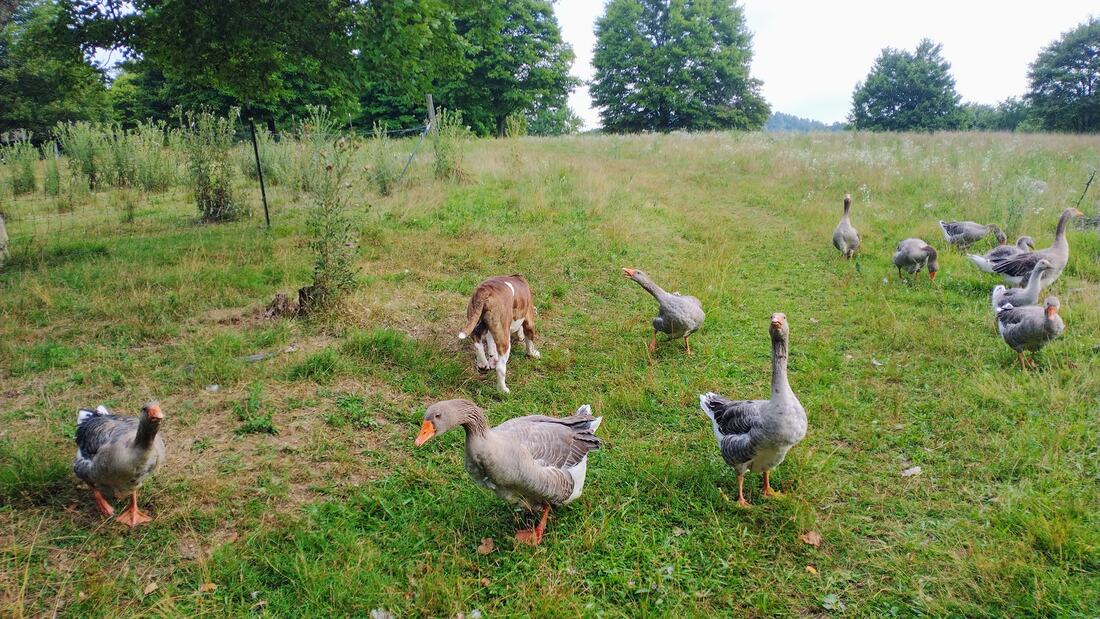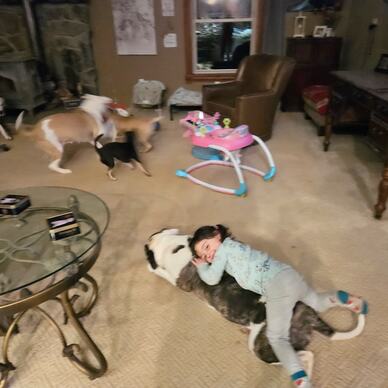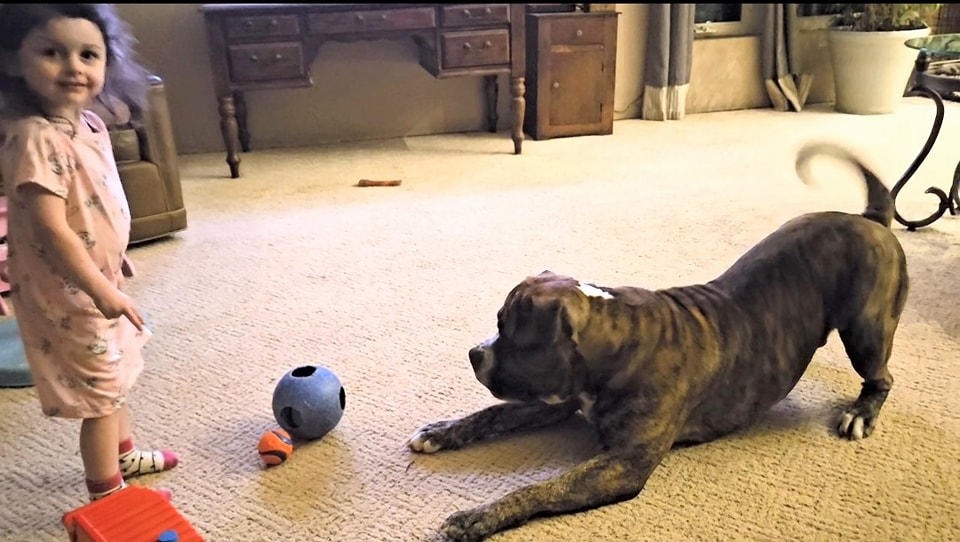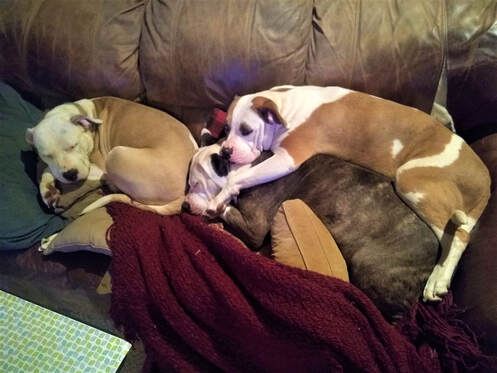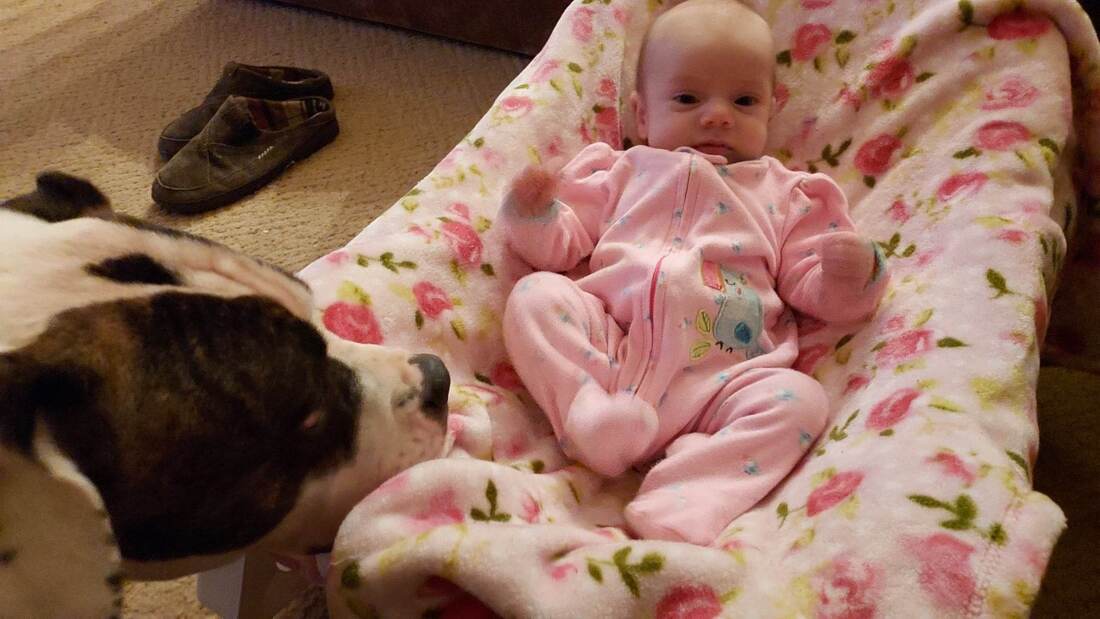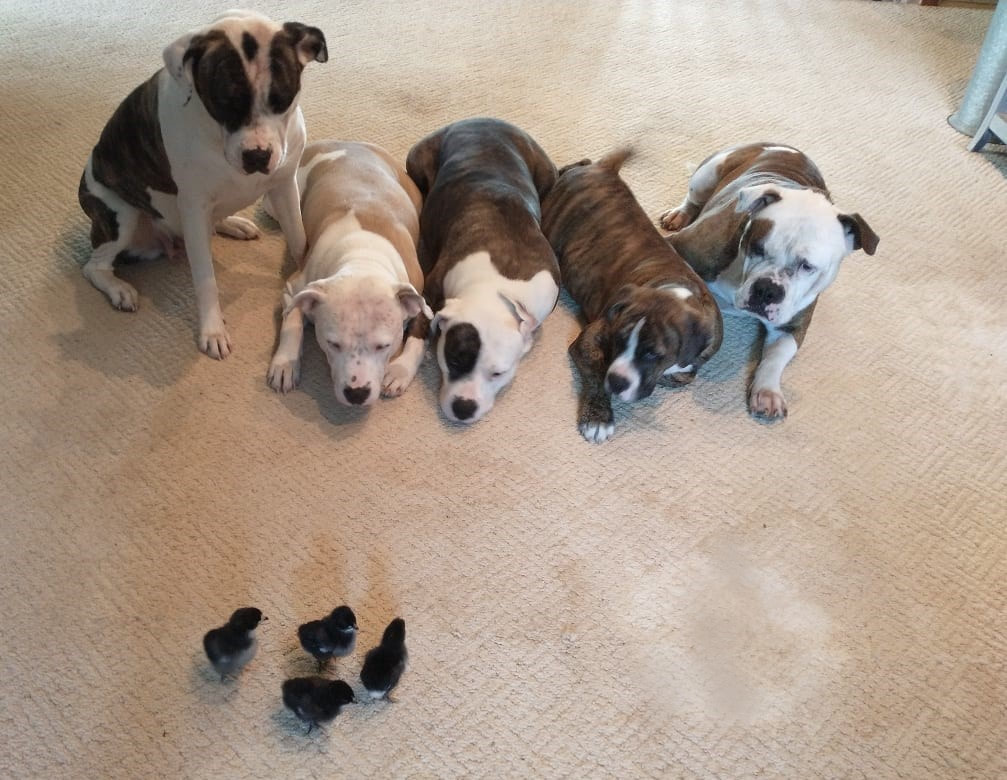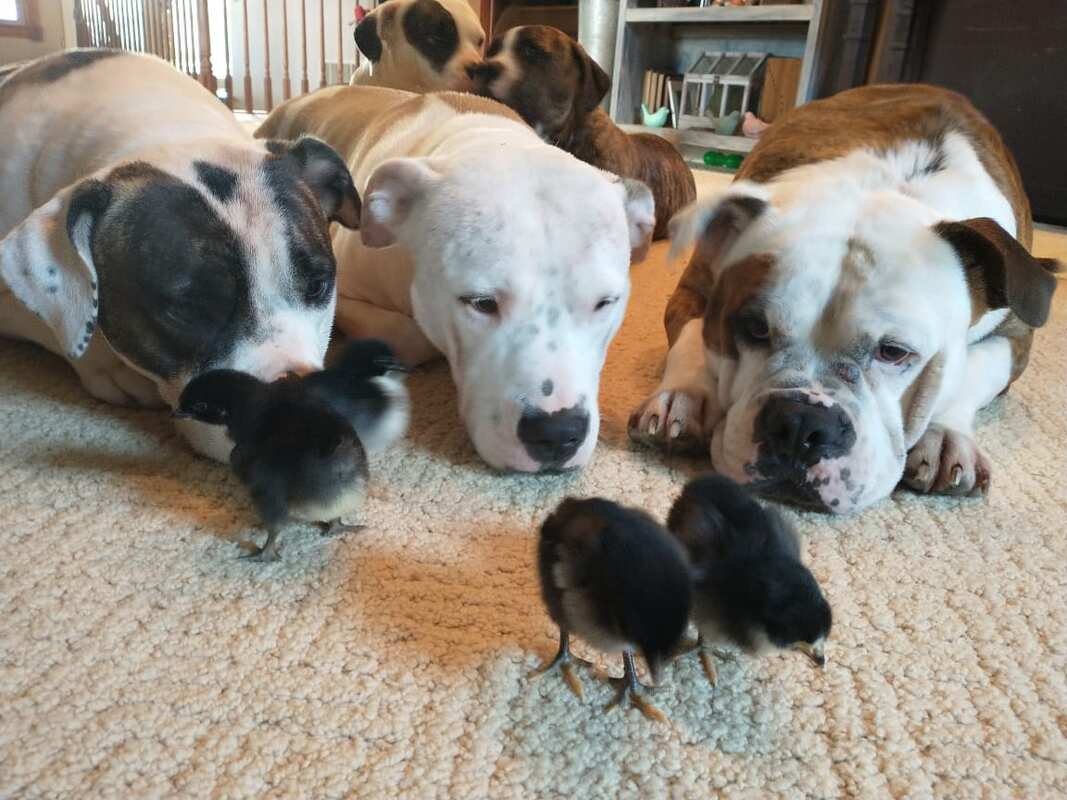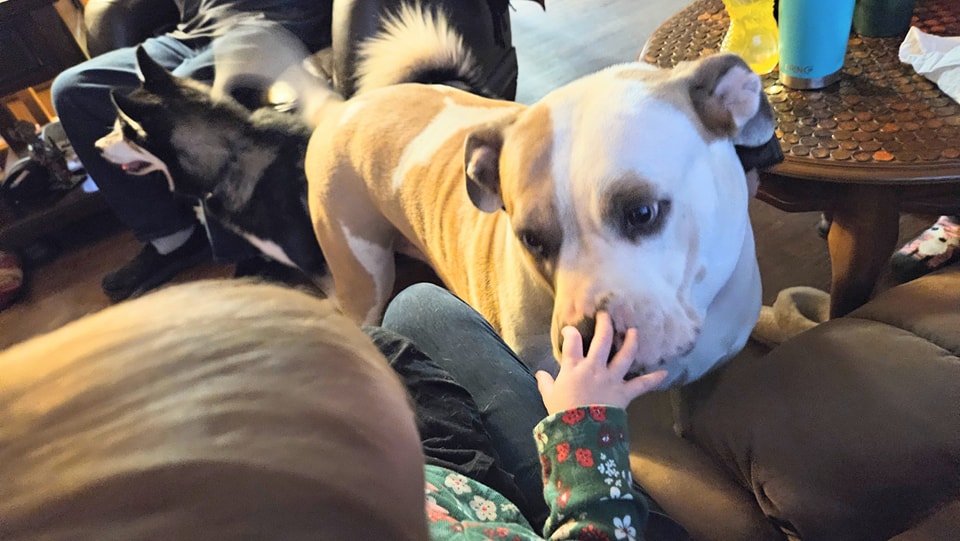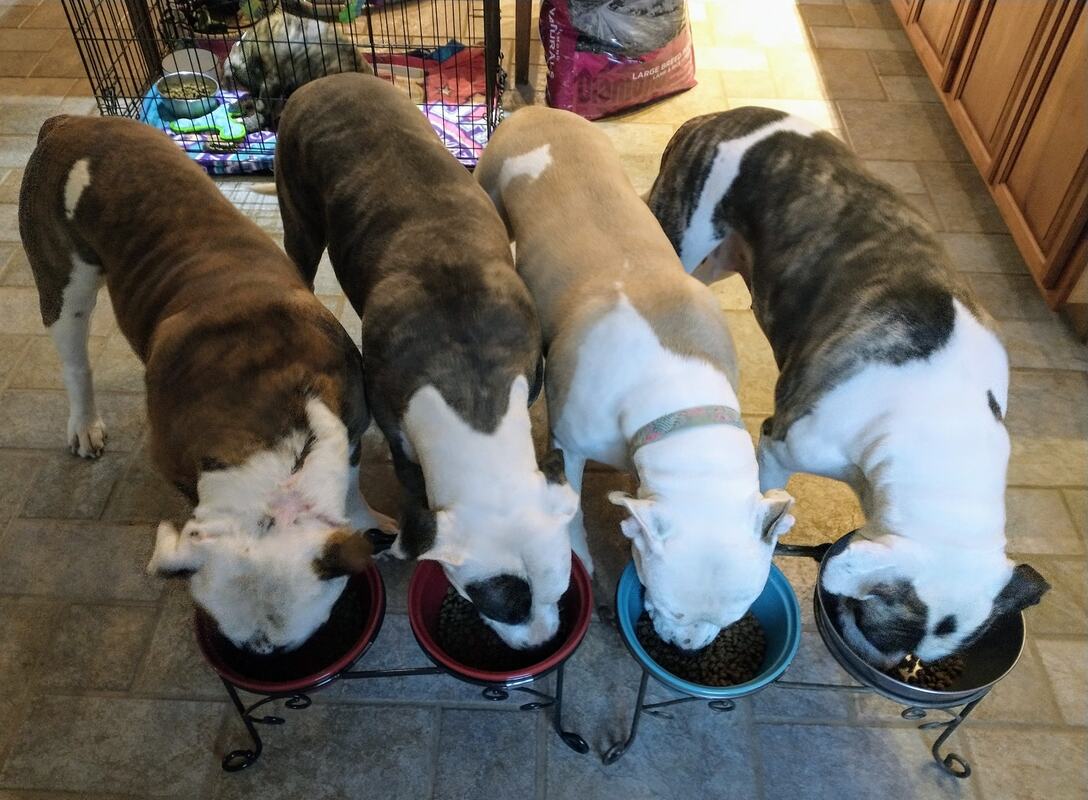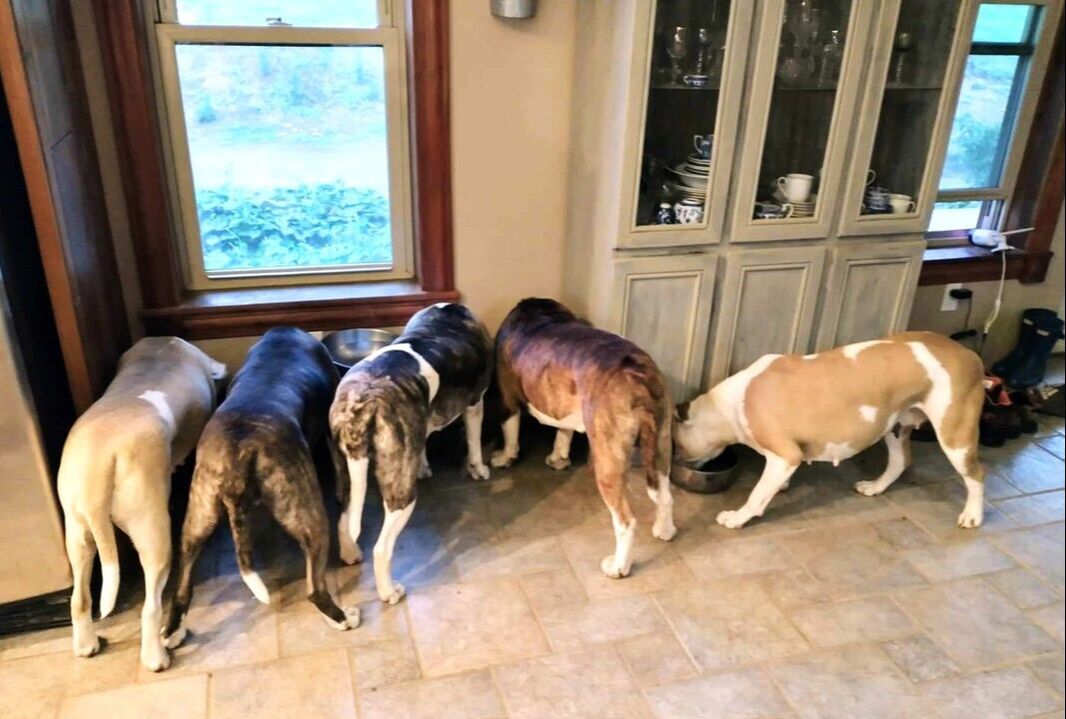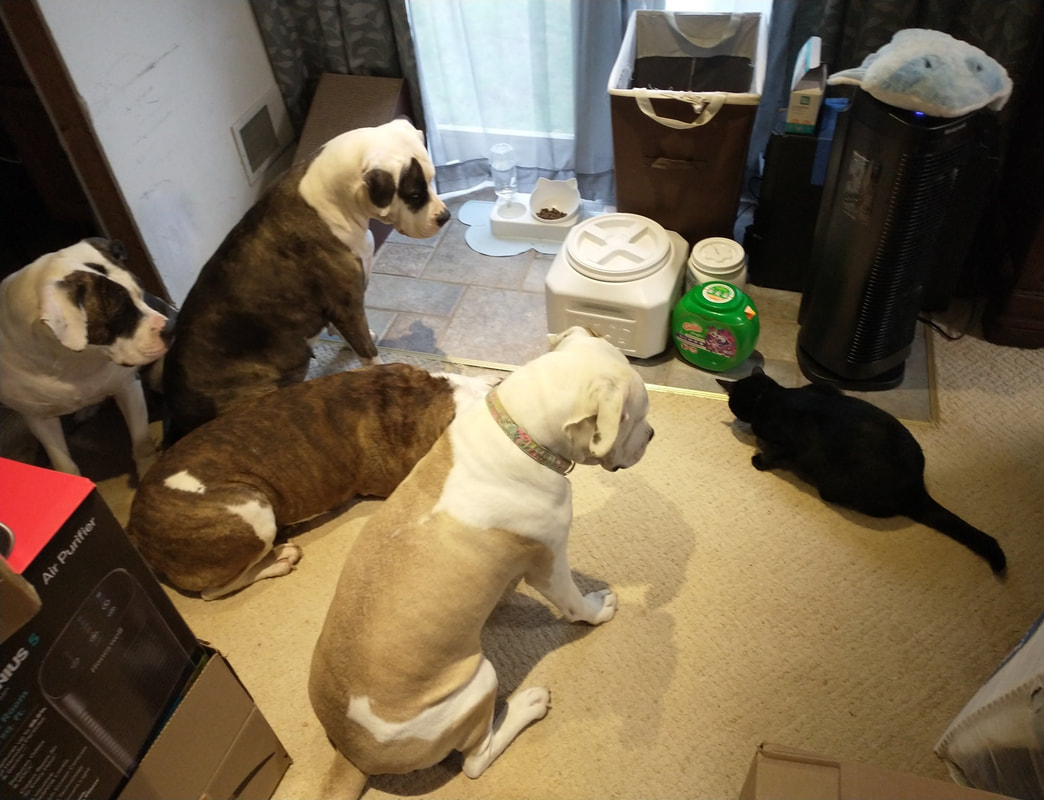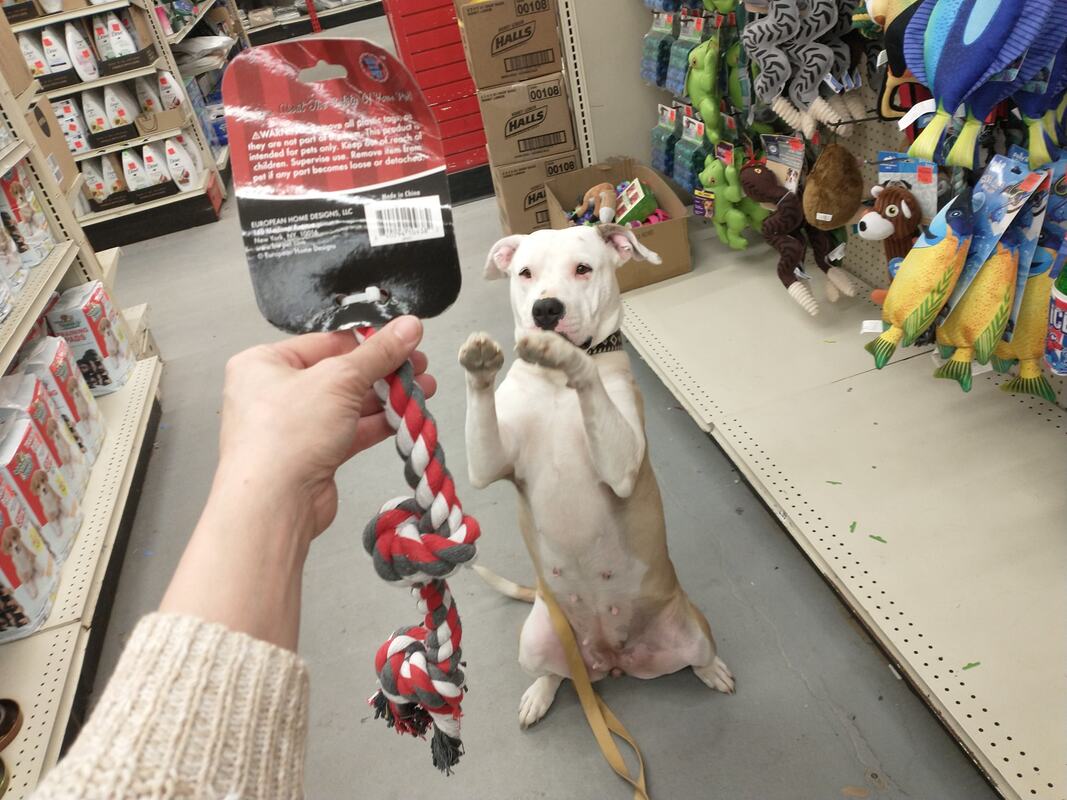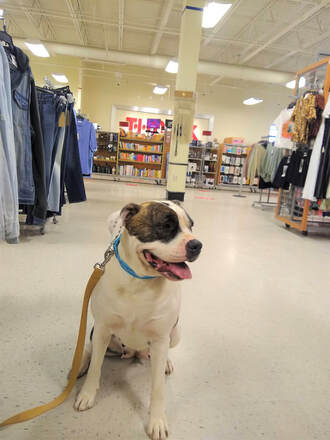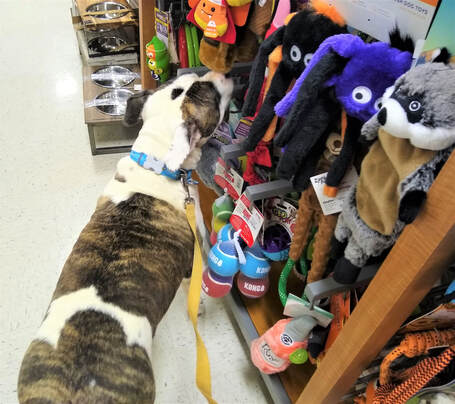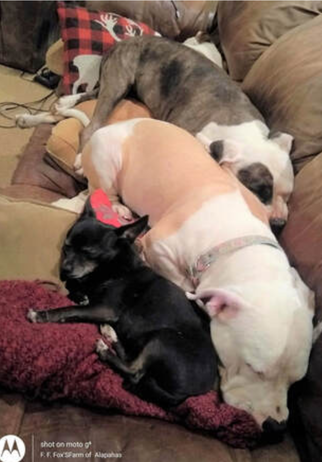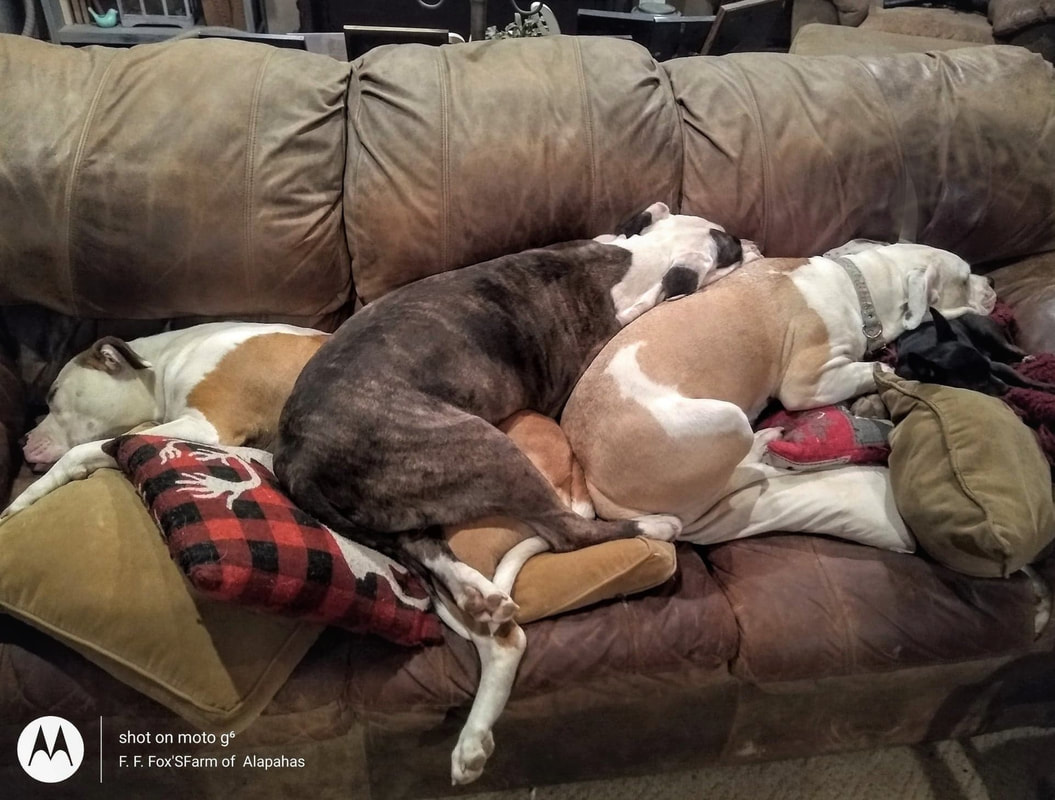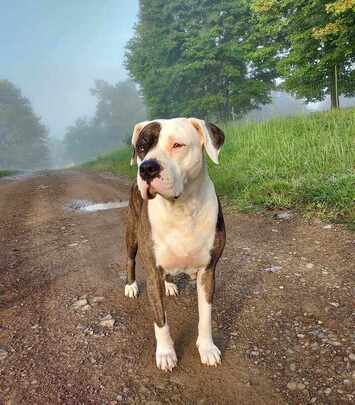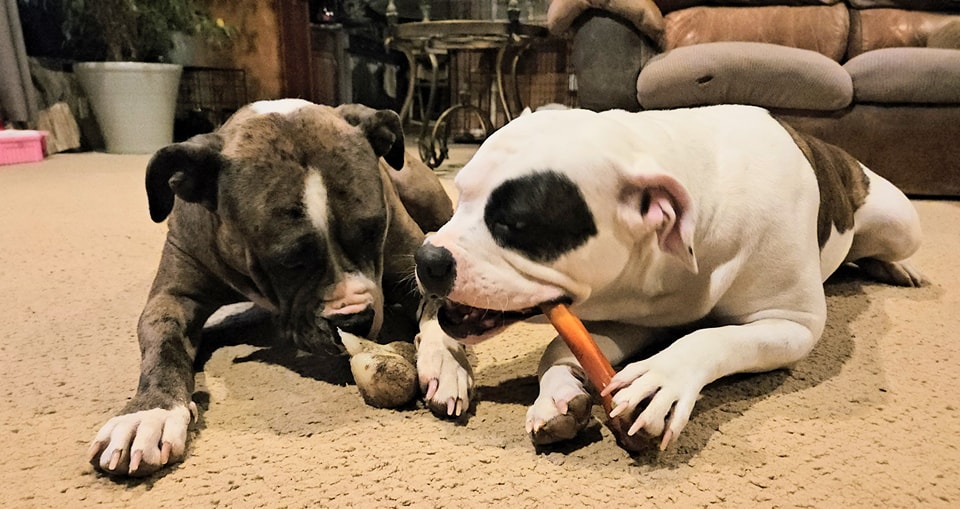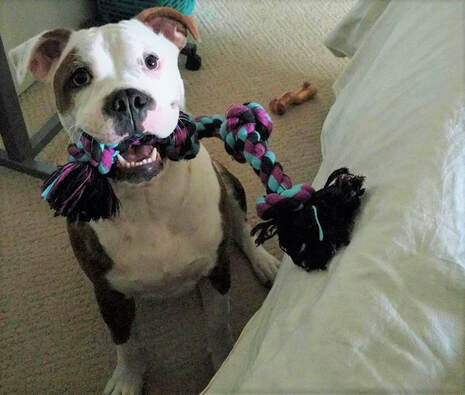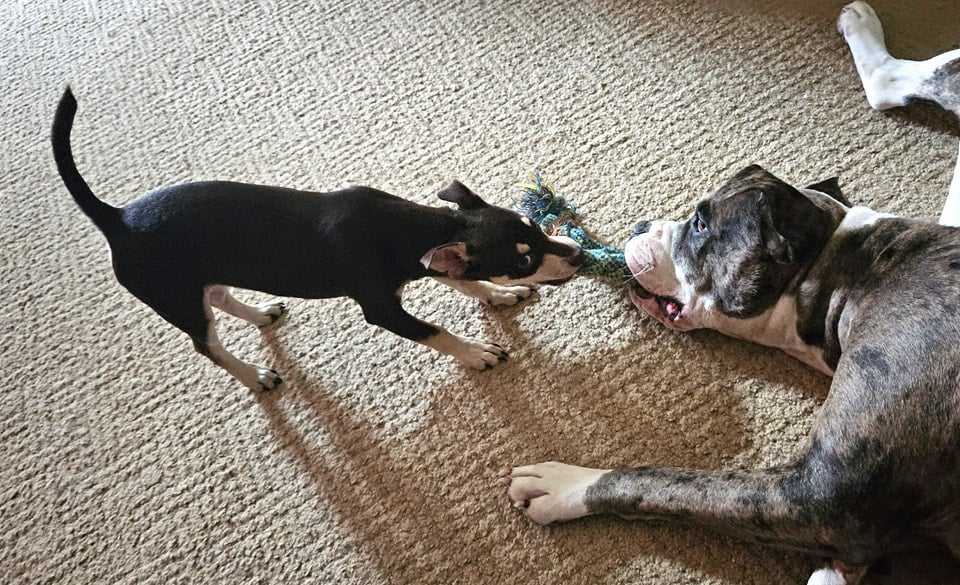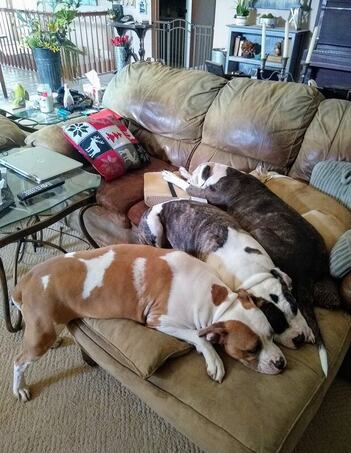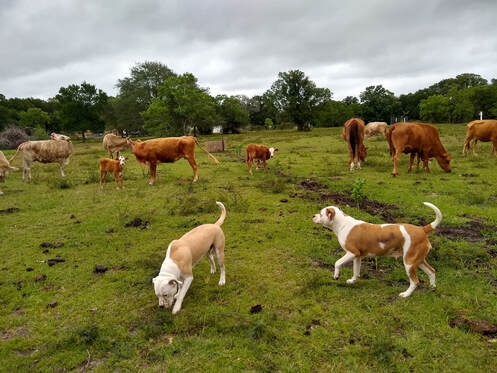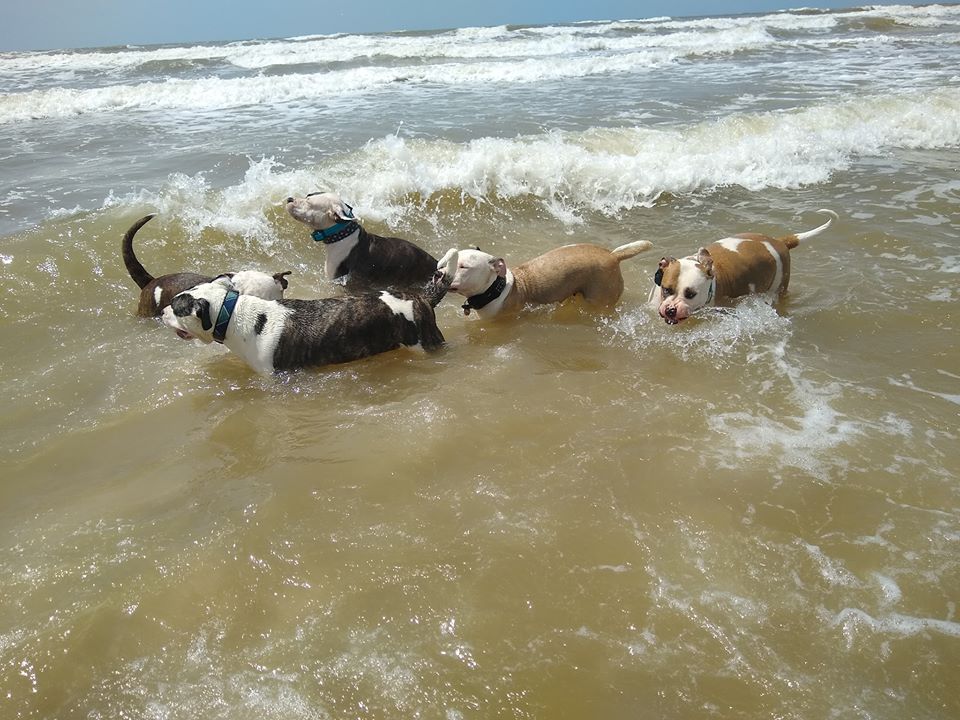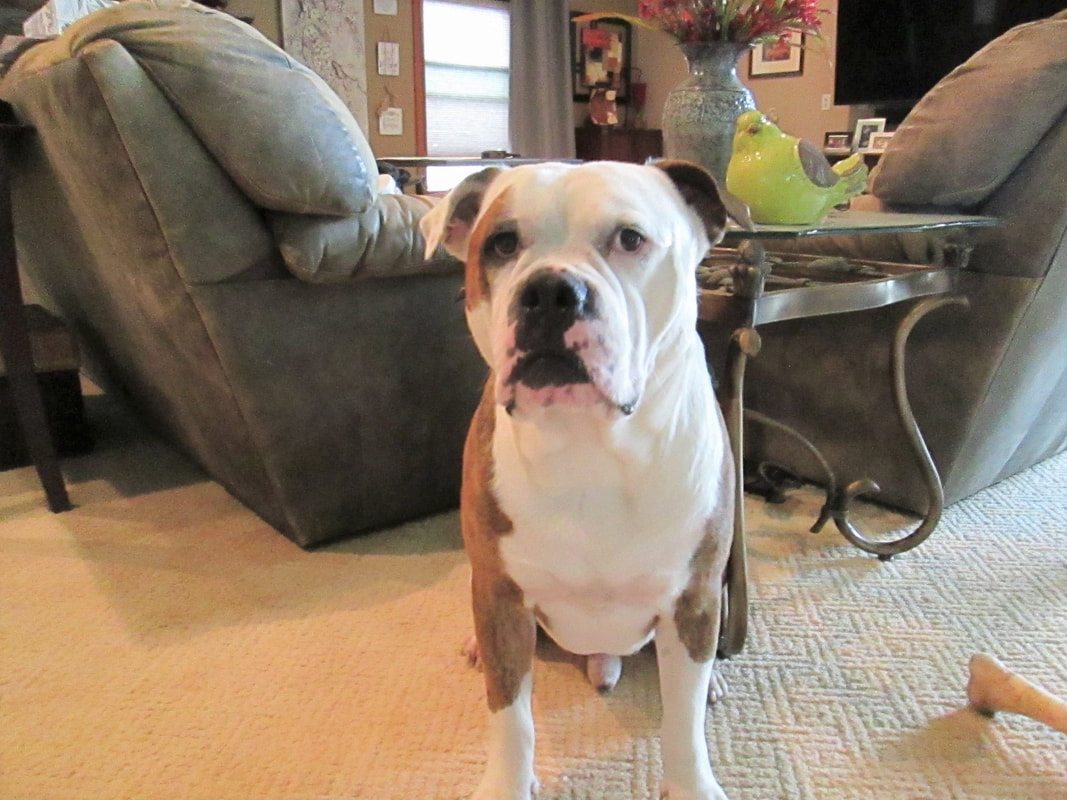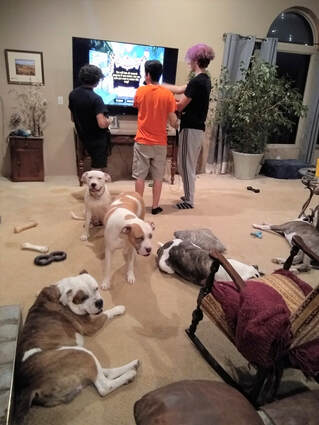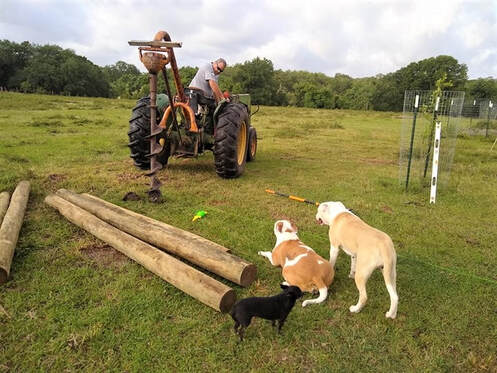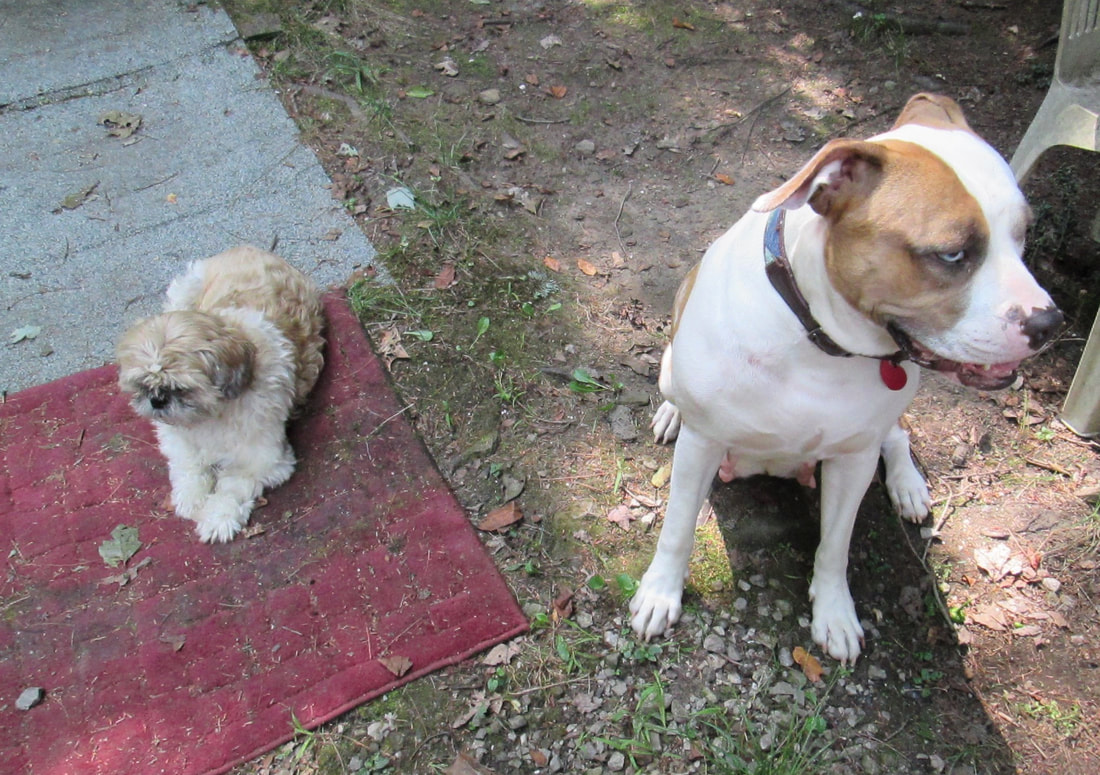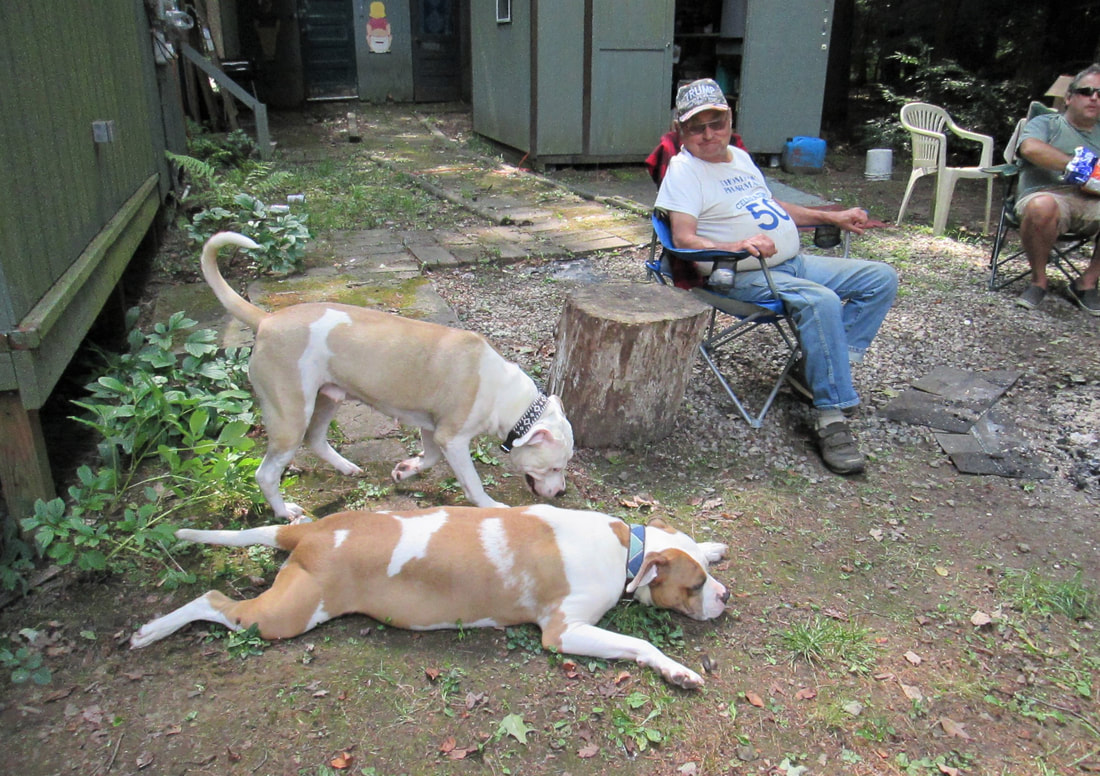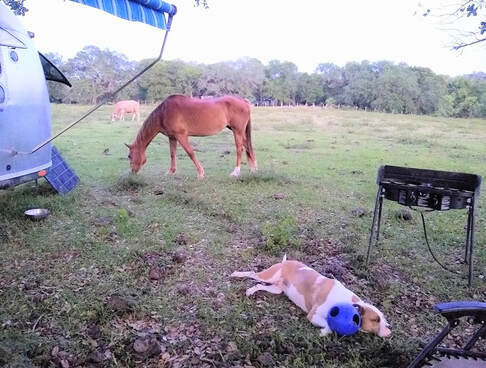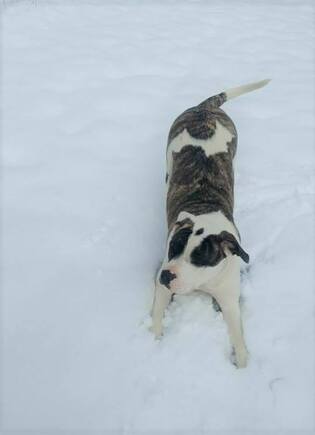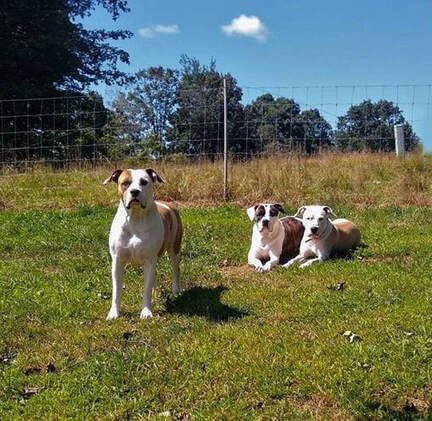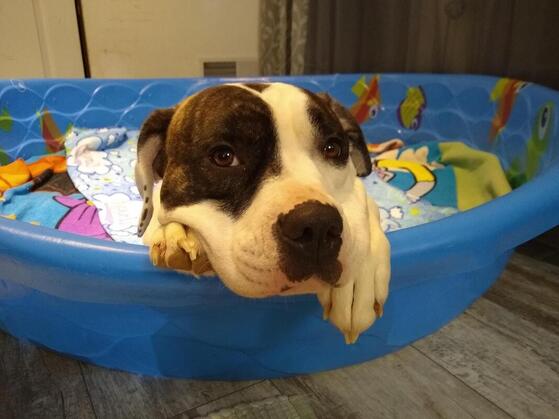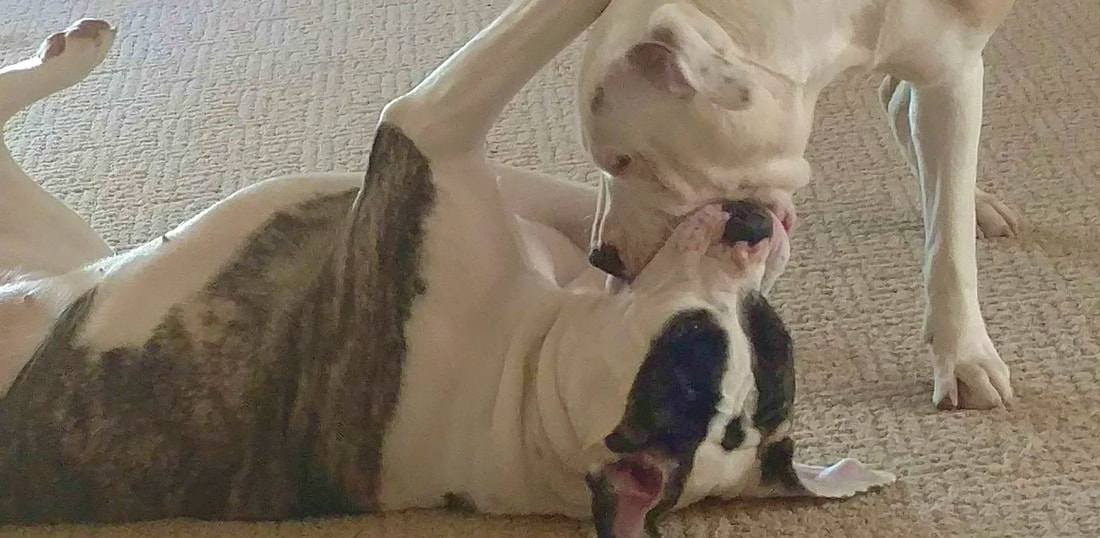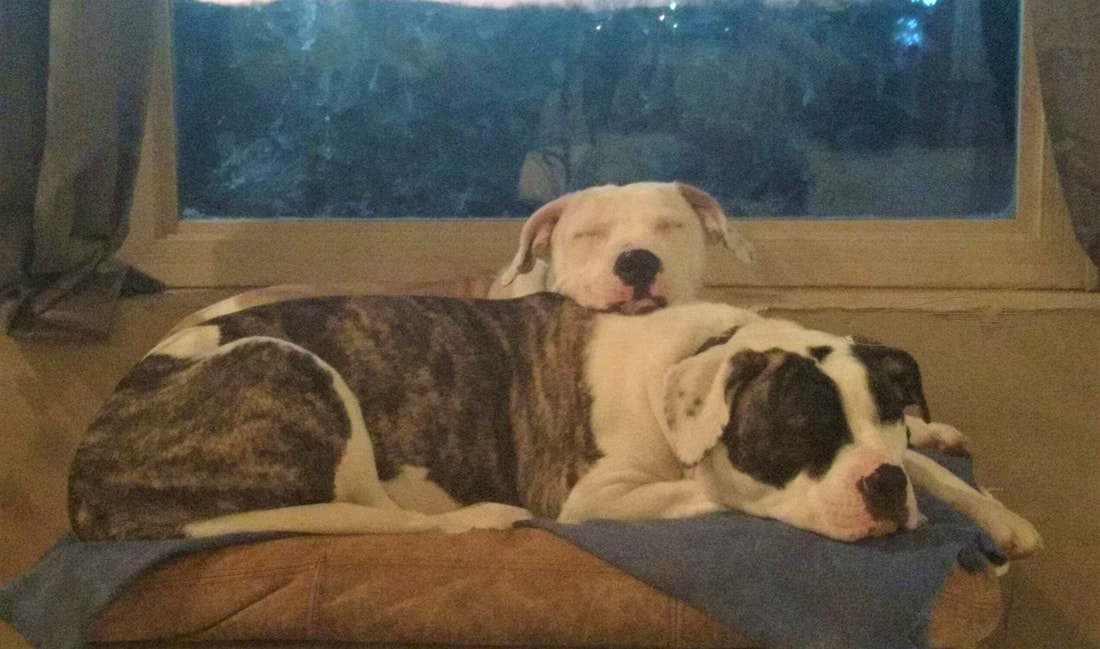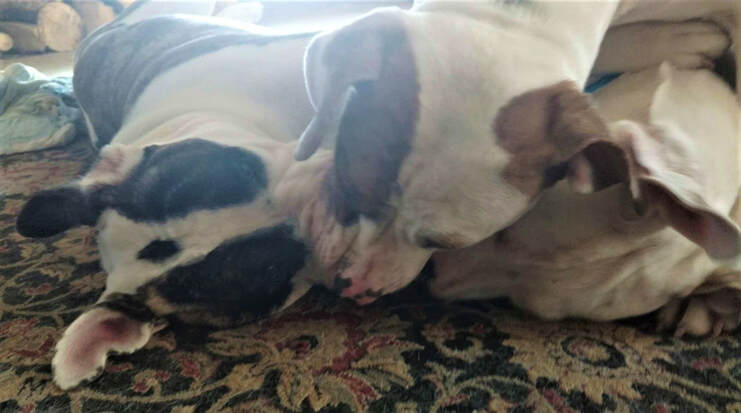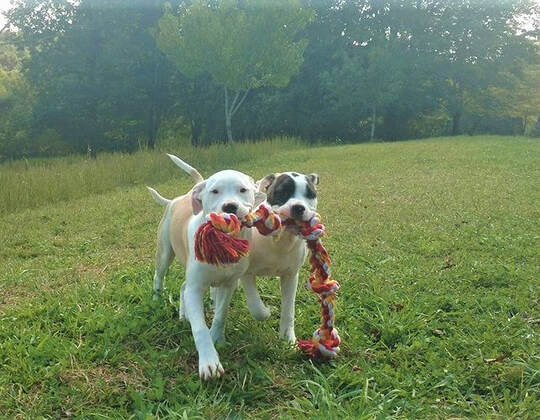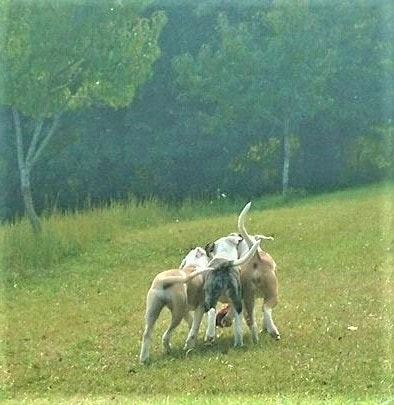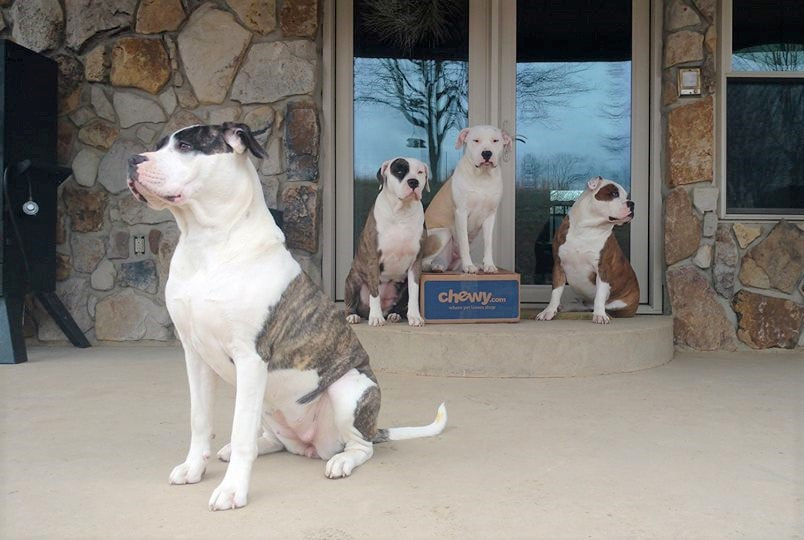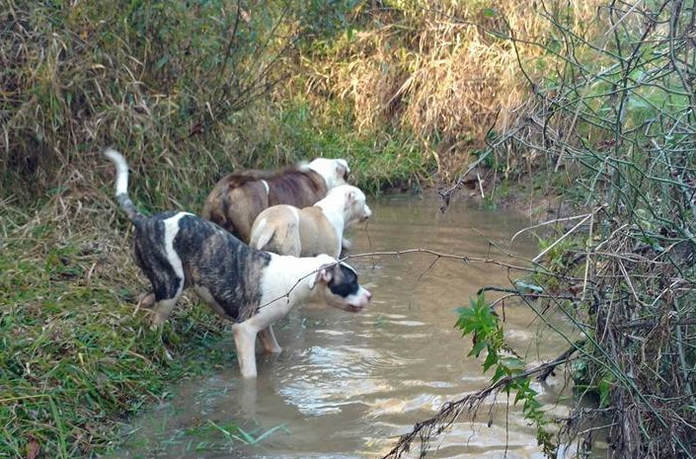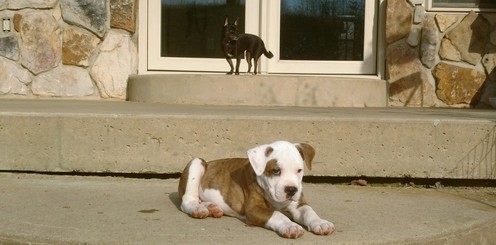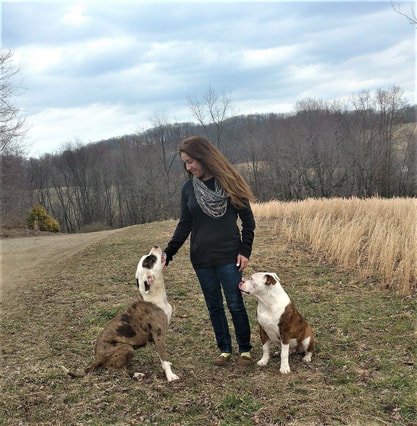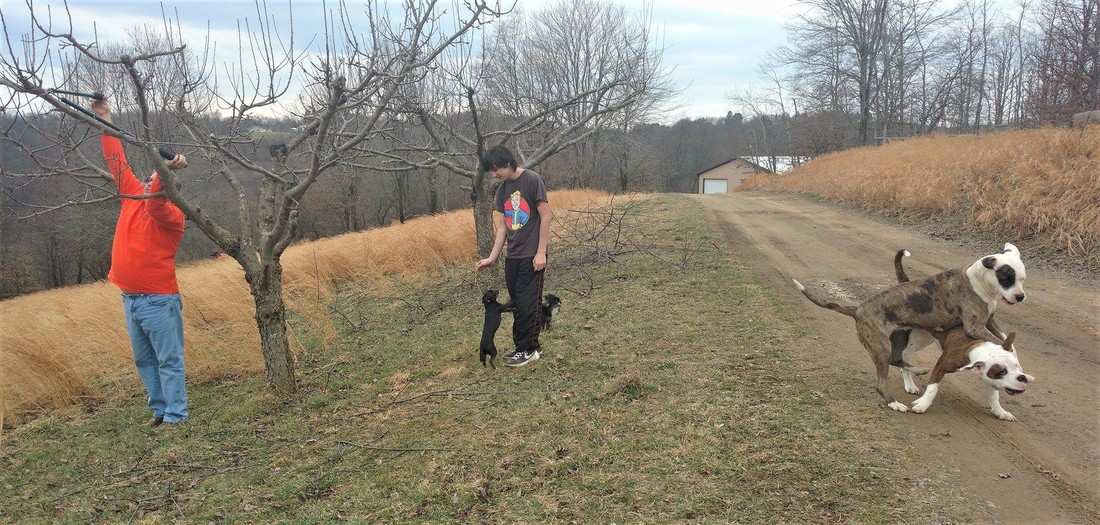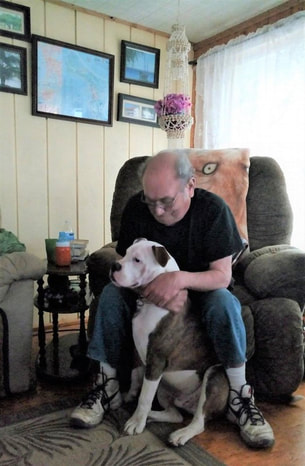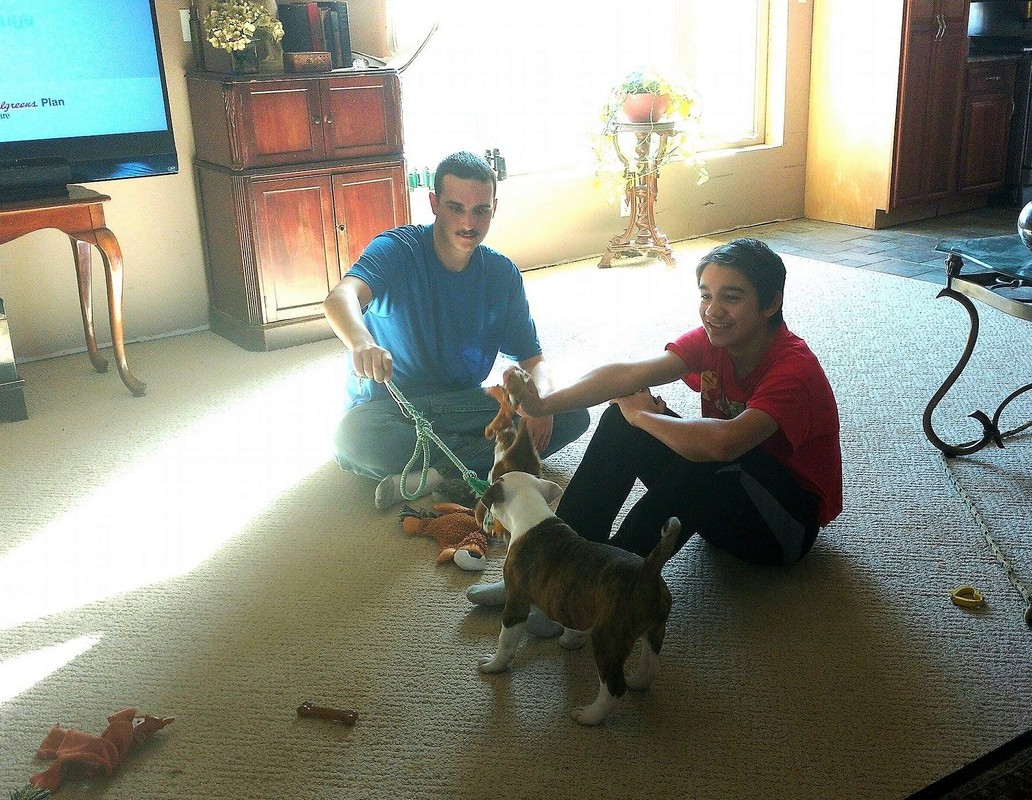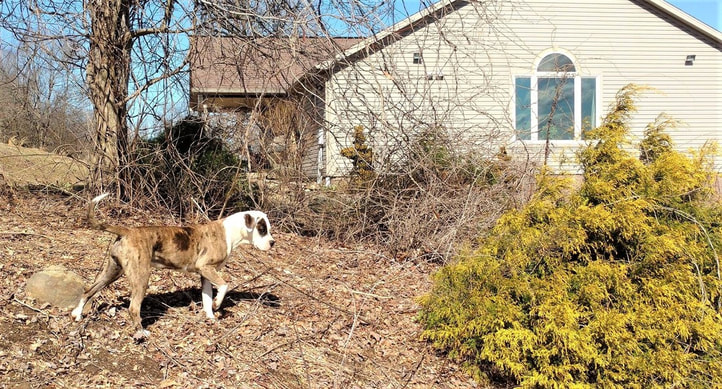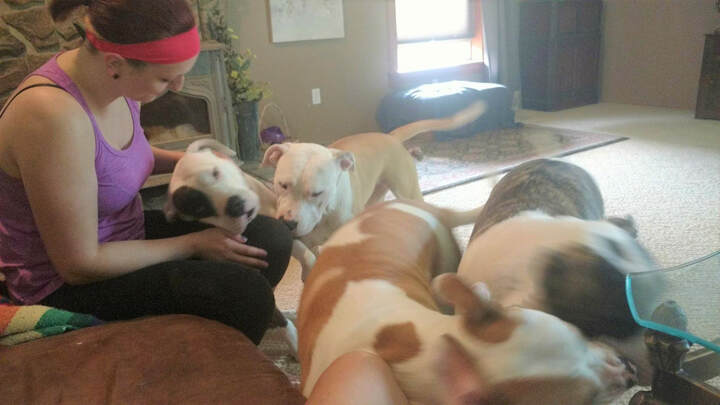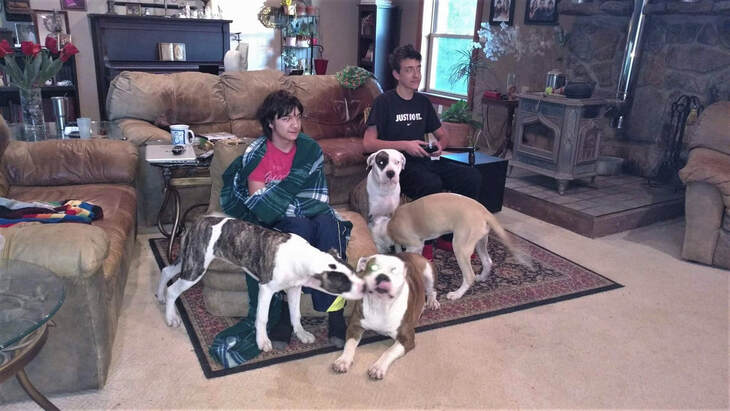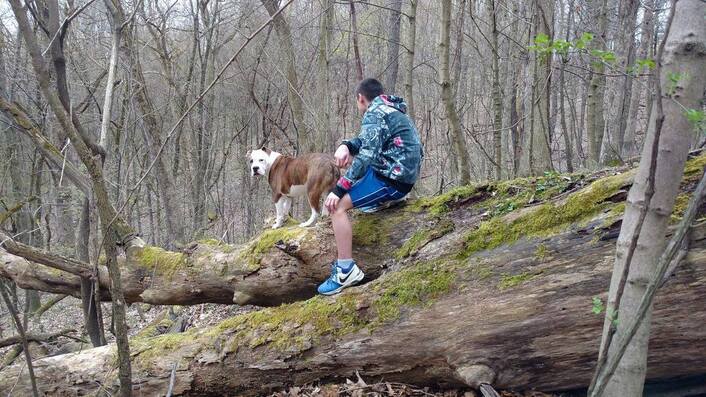This website is best viewed on a PC.
Around Our Farm...
~ In her Pamphlet on * Pg. 5* Mrs. Lana Lou Lane (founder of the breed) affirms: "THE ALAPAHA IS NOT THE SAME DOG AS AMERICAN BULLDOG AND NOT TO BE CONFUSED WITH THEM, OR TO BE CROSS BRED WITH THEM" ~
TEMPERAMENT:
The Alapaha Blue Blood Bulldog is very intelligent and highly trainable. They excel at obedience therefore easy to potty train, etc. They love having a job! This keeps their mind stimulated, and gives them a purpose, which allows a way to exert any pent up energy so bordem doesn't set, and lead to destructive behavior. It's also a great way to keep them in shape, and all in all a mentally happy, sound dog who is getting their needs met.
Alapaha's have a natural affection toward children, and love to be near them. This is a very versitile working breed. With the proper training, they can be used for herding, agility, service animal work, tracking, as a gun dog, and hunting...
Displaying a presence of nobility, they are confident, alert, protective, affectionate, and loyal. As with any breed, early and consistent socialization and exposure to other dogs, people, various surroundings, and sounds is ideal in reducing their suspicious nature around people, although, there are some that may not display this for example, our dogs Jack, Lexy, Lovely and Cypress, do not have a leery nature around new people. They will readily greet them right away. However, they still posses their guard dog qualities. Desensitizing helps to promote focus on you no matter your surrounds. They are not dog or human aggressive. They do not go looking for a fight, and in most circumstances they will not back down if challenged by another dog/animal. They can be aloof with strangers but are not aggressive toward them, only displaying aggression when it is necessary for defense. With reassurance from their owners, they will accept guests and friends. Some assertiveness toward other dogs is acceptable.
The Alapaha Blue Blood Bulldog is very intelligent and highly trainable. They excel at obedience therefore easy to potty train, etc. They love having a job! This keeps their mind stimulated, and gives them a purpose, which allows a way to exert any pent up energy so bordem doesn't set, and lead to destructive behavior. It's also a great way to keep them in shape, and all in all a mentally happy, sound dog who is getting their needs met.
Alapaha's have a natural affection toward children, and love to be near them. This is a very versitile working breed. With the proper training, they can be used for herding, agility, service animal work, tracking, as a gun dog, and hunting...
Displaying a presence of nobility, they are confident, alert, protective, affectionate, and loyal. As with any breed, early and consistent socialization and exposure to other dogs, people, various surroundings, and sounds is ideal in reducing their suspicious nature around people, although, there are some that may not display this for example, our dogs Jack, Lexy, Lovely and Cypress, do not have a leery nature around new people. They will readily greet them right away. However, they still posses their guard dog qualities. Desensitizing helps to promote focus on you no matter your surrounds. They are not dog or human aggressive. They do not go looking for a fight, and in most circumstances they will not back down if challenged by another dog/animal. They can be aloof with strangers but are not aggressive toward them, only displaying aggression when it is necessary for defense. With reassurance from their owners, they will accept guests and friends. Some assertiveness toward other dogs is acceptable.
Alapahas were NEVER bred for aggression or for the appearance thereof. Guarding is a natural instinct of this breed, and they are protective of their family, and property along with other pets, and animals they are raised around. They are not one person dogs, and make excellent loyal companions. They establish their territory at a young age. They will fight to the death to protect their owners if the situation arises. The Alapaha loves attention, and prefers to be close to their people! The breed does not test for the "Superior Position" in the family, and are more than happy to be in the lowest rank, ever desiring of your love, affection, and in your lap if allowed, throughout their life! They are generally not suitable for kennel situations, preferring the role of companion.
Intelligent and Trainability, Lily Takes A "Bow"
|
Jack and Lexy. More videos on my YouTube channel!
Socializing at 8 wks...
|
|
Our daughter, and the fur babies enjoying her visit!
Early morning Xbox...
Temperament: Temperament is a function of genetics. It is inherited not developed. A dog's core temperament never changes. Some behaviors can be modified through training, but the temperament itself never changes. It's in their DNA. For example, a high energy dog is not going to learn to be a laid back low energy dog. But the dog can be taught to control his energy, to an extent. A dog with a rotten temperament will always be a dog with a rotten temperament no matter how wonderful the environment is. A dog with a sound, stable temperament will always be a sound, stable dog even in a miserable environment.
Personality: Each dog has a personality, which is different than temperament. Personality is developed through interaction with other animals, and primarily with people. A dog will not consider as a prey object, any living creature to which he is exposed to early as a puppy. Puppies who are raised in nurturing, enriched environments, tend to have well-developed personalities. Good early handling, socialization, and training will help develop desirable traits, but those traits have to be there. However, this does not change their temperament.
We begin handling our puppies from birth, rubbing their feet, ears, and tail, handling their mouths and turning them over as they mature. We start their socialization along with introducing them to our friends, and family, the other animals here, different surfaces, and sounds. We believe this is vital in developing each puppies trust, and personality, and should continue long after they leave us, and our home to be with their new families.
Personality: Each dog has a personality, which is different than temperament. Personality is developed through interaction with other animals, and primarily with people. A dog will not consider as a prey object, any living creature to which he is exposed to early as a puppy. Puppies who are raised in nurturing, enriched environments, tend to have well-developed personalities. Good early handling, socialization, and training will help develop desirable traits, but those traits have to be there. However, this does not change their temperament.
We begin handling our puppies from birth, rubbing their feet, ears, and tail, handling their mouths and turning them over as they mature. We start their socialization along with introducing them to our friends, and family, the other animals here, different surfaces, and sounds. We believe this is vital in developing each puppies trust, and personality, and should continue long after they leave us, and our home to be with their new families.
***Any other breed of dog introduced into the Alapaha's bloodline outside of what Lana Lou Lane used in the establishing of her Alapaha Blue Blood Bulldogs changes a dog forever. It is no longer an Alapaha but is considered a hybrid***
